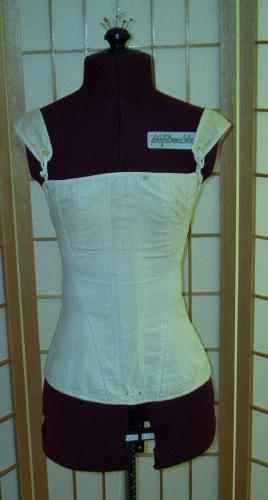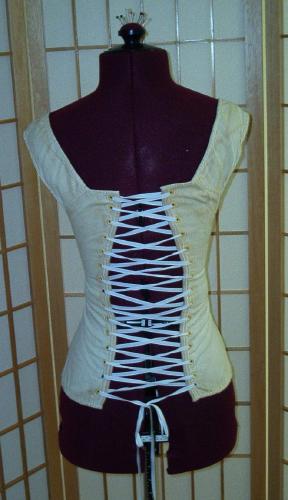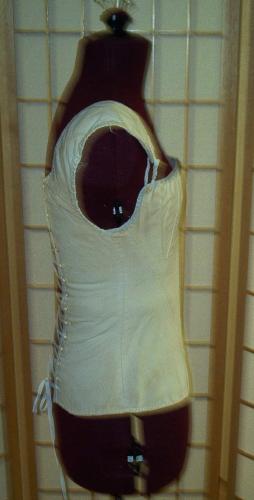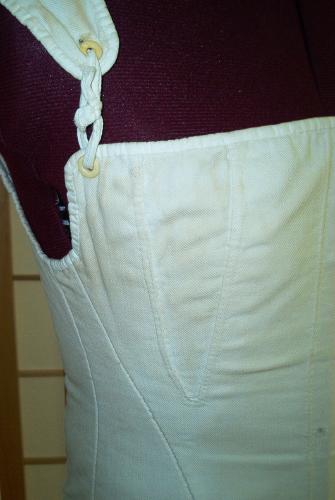The corset seen from the front and the back. The eyelets are matched,
so the corset was meant to be cross, and not spiral, laced. The shoulders
are very wide, and would have allowed for an almost off the shoulder neckline.
The straps tie into place. The shaping is achieved through 2 bust
gussets and the shape of the side and hip pieces. The corset is very lightly corded and the seams are sewn in a way that makes them very firm. The cording, with the cotton twill and linen lining
make for a soft corset which appears to have been quite comfortable to
wear. There are two 3/16" cords sewn down the center backs
to support the lacings, and each seam has two thin pieces of cord whipstitched
to it. The corset is bound with tape (linen, I believe) that is cut
on the straight of grain.
The side views. The shaping of the corset is quite straight, and
would have been used more to smooth out the figure than to emphasize the
waist. The gussets are quite deep, they would have provided for a
more rounded figure than the extremely pushed up look that accompanied
the Empire waisted dresses of previous decades.
The shoulder lacing.
Close ups of the bust gusset and shaping over the hips. The sewing
on the gusset isn't perfect, which I like because it shows that they were
tricky for more than just modern seamstresses! There are no gussets
over the hips, rather the pieces are cut to accomodate the extra width.
On the left, a close up of the front, showing the busk. A thin
(slightly less than 1/8") cord is sandwiched between the inner and outer
layers of the corset on either side of the busk. Close up of the
lacing, showing both the bone and repaired eyelets.










 Time
to go home!
Time
to go home!